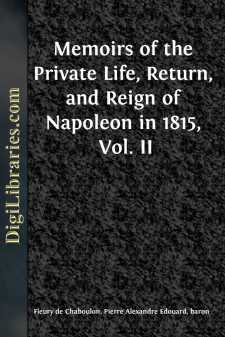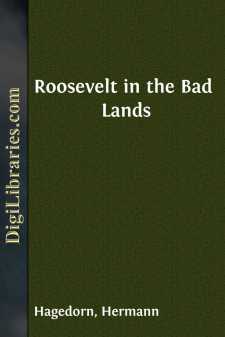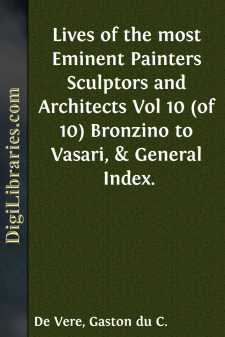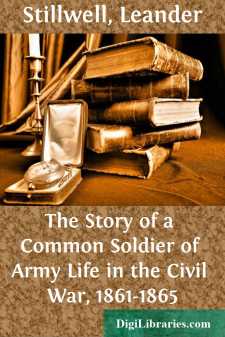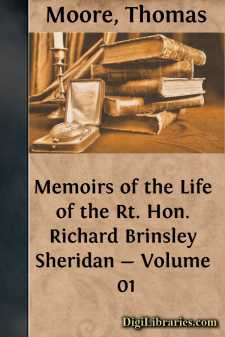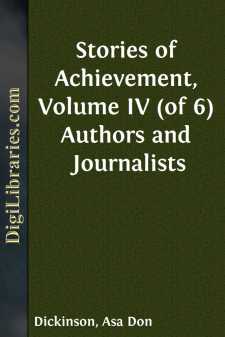Biography & Autobiography
- Adventurers & Explorers 15
- Artists, Architects, Photographers 16
- Business 2
- Composers & Musicians 14
- Criminals & Outlaws 5
- Editors, Journalists, Publishers 6
- Educators 1
- Entertainment & Performing Arts 3
- General 73
- Health, Exercise & Fitness 1
- Historians 3
- Historical 83
- Law Enforcement 1
- Lawyers & Judges 3
- Literary 147
- Medical 7
- Military 48
- Naturalists, Gardeners, Environmentalists 8
- Personal Memoirs & Diaries 226
- Philosophers 3
- Political 9
- Presidents & Heads of State 38
- Religious 38
- Rich & Famous 27
- Scientists 13
- Women 31
Biography & Autobiography Books
Sort by:
There was at this same time in Florence a painter of most beautiful intelligence and most lovely invention, namely, Filippo, son of Fra Filippo of the Carmine, who, following in the steps of his dead father in the art of painting, was brought up and instructed, being still very young, by Sandro Botticelli, notwithstanding that his father had commended him on his death-bed to Fra Diamante, who was much...
more...
At the same period (May the 1st) the Emperor received a fresh proof of the little confidence, that men deserve, and of the horrible facility, with which they sacrifice their duties and their sentiments, to the suggestions of their covetousness or their ambition. Of all the ministers of Napoleon there was not one, who, at the time of his return, lavished on him so many protestations of fidelity and...
more...
by:
Hermann Hagedorn
It was still the Wild West in those days, the Far West, the West of Owen Wister's stories and Frederic Remington's drawings, the West of the Indian and the buffalo-hunter, the soldier and the cowpuncher. That land of the West has gone now, "gone, gone with lost Atlantis," gone to the isle of ghosts and of strange dead memories. It was a land of vast silent spaces, of lonely rivers,...
more...
When he could stand it no longer, he fired a revolver up through the roof of his mouth, but he made a mess of it. The ball tore out his left eye, and then lodged somewhere under his skull, so they bundled him into an ambulance and carried him, cursing and screaming, to the nearest field hospital. The journey was made in double-quick time, over rough Belgian roads. To save his life, he must reach the...
more...
Having written hitherto of the lives and works of the most excellent painters, sculptors, and architects, from Cimabue down to the present day, who have passed to a better life, and having spoken with the opportunities that came to me of many still living, it now remains that I say something of the craftsmen of our Academy of Florence, of whom up to this point I have not had occasion to speak at...
more...
"MEN OF MIND" In the companion volume of this series, "Men of Action," the attempt was made to give the essential facts of American history by sketching in broad outline the men who made that history—the discoverers, pioneers, presidents, statesmen, soldiers, and sailors—and describing the part which each of them played. It was almost like watching a great building grow under the...
more...
CHAPTER I. THE BEGINNING OF THE WAR. LIFE AT CAMP CARROLLTON, JANUARY AND FEBRUARY, 1862. I was born September 16, 1843, on a farm, in Otter Creek precinct, Jersey County, Illinois. I was living with my parents, in the little old log house where I was born, when the Civil war began. The Confederates fired on Fort Sumter on April 12, 1861, and thus commenced the war. On April 15, 1861, President Lincoln...
more...
CHAPTER I. ORGANIZING SCOUTS—MISS REBECCA WRIGHT—IMPORTANT INFORMATION—DECIDE TO MOVE ON NEWTOWN—MEETING GENERAL GRANT—ORGANIZATION OF THE UNION ARMY—OPENING OF THE BATTLE OF THE OPEQUON—DEATH OF GENERAL RUSSELL —A TURNING MOVEMENT—A SUCCESSFUL CAVALRY CHARGE—VICTORY—THREE LOYAL GIRLS—APPOINTED A BRIGADIER-GENERAL IN THE REGULAR ARMY —REMARKS ON THE BATTLE. While occupying the...
more...
by:
Thomas Moore
CHAPTER I. BIRTH AND EDUCATION OF MR. SHERIDAN.—HIS FIRST ATTEMPTS IN LITERATURE. Richard Brinsley [Footnote: He was christened also by the name of Butler, after the Earl of Lanesborough.] Sheridan was born in the month of September, 1751, at No. 12, Dorset Street, Dublin, and baptized in St. Mary's Church, as appears by the register of the parish, on the fourth of the following month. His...
more...
JEAN JACQUES ROUSSEAU THE MAN TO WHOM EXPRESSION WAS TRAVAIL From the "Confessions of Rousseau." It is strange to hear that those critics who spoke of Rousseau's "incomparable gift of expression," of his "easy, natural style," were ludicrously incorrect in their allusions. From his "Confessions" we learn that he had no gift of clear, fluent expression; that he was...
more...



